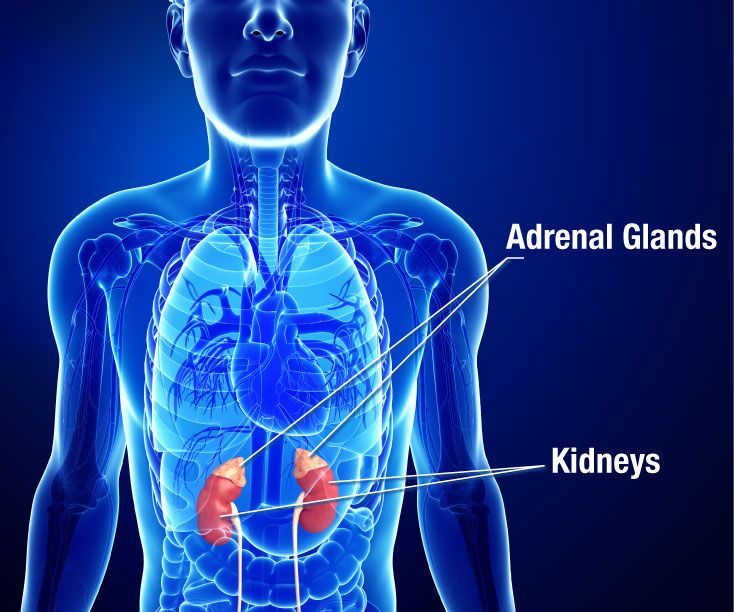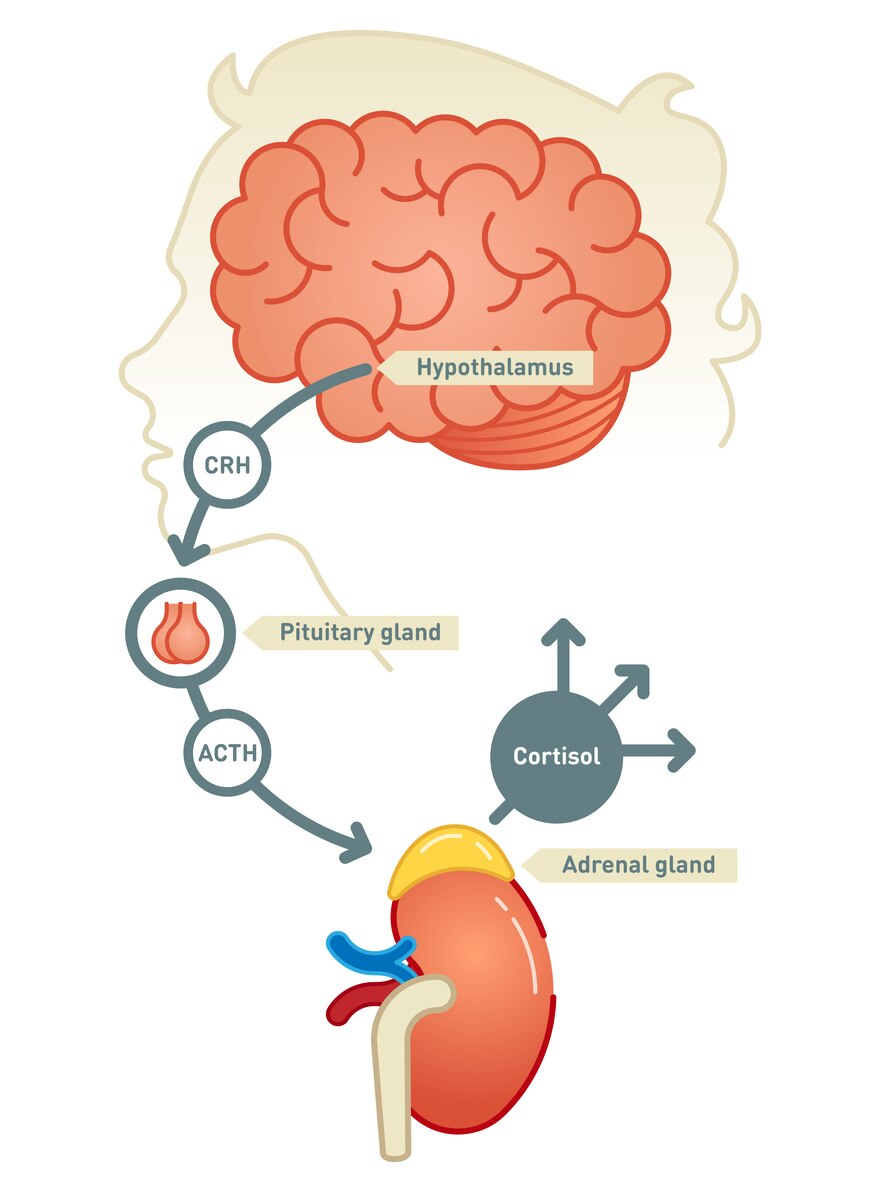Definition & Facts of Adrenal Insufficiency & Addison's Disease
In this section:
- What is adrenal insufficiency?
- What do adrenal hormones do?
- How common is adrenal insufficiency?
- Who is more likely to develop adrenal insufficiency?
- What are the complications of adrenal insufficiency?
What is adrenal insufficiency?
Adrenal insufficiency is a disorder that occurs when the adrenal glands don’t make enough of certain hormones. The adrenal glands are located just above the kidneys. Adrenal insufficiency can be primary, secondary, or tertiary. Primary adrenal insufficiency is often called Addison’s disease.
Adrenal insufficiency can affect your body’s ability to respond to stress and maintain other essential life functions. With treatment, most people with adrenal insufficiency can have a normal, active life.

Addison's disease
Addison’s disease occurs when the adrenal glands are damaged and can’t make enough of the hormone cortisol and sometimes the hormone aldosterone.
Secondary adrenal insufficiency
Secondary adrenal insufficiency starts in the pituitary—a pea-sized gland at the base of the brain. The pituitary makes adrenocorticotropin (ACTH), a hormone that tells the adrenal glands to make cortisol. If the pituitary doesn’t make enough ACTH, the adrenal glands don’t make enough cortisol. Over time, the adrenal glands can shrink and stop working.
Tertiary adrenal insufficiency
Tertiary adrenal insufficiency starts in the hypothalamus, a small area of the brain near the pituitary. The hypothalamus makes corticotropin-releasing hormone (CRH), a hormone that tells the pituitary to make ACTH. When the hypothalamus doesn’t make enough CRH, the pituitary gland doesn’t make enough ACTH. In turn, the adrenal glands don’t make enough cortisol.

What do adrenal hormones do?
The adrenal glands make two main types of hormones: cortisol and aldosterone.
Cortisol
Cortisol is sometimes called the “stress hormone” because it helps your body respond to stress. Cortisol also helps
- control blood pressure
- control blood glucose, also called blood sugar
- reduce inflammation
- control metabolism
Cortisol belongs to a class of hormones called glucocorticoids.
Aldosterone
Aldosterone helps maintain the balance of the minerals sodium and potassium in your blood. Sodium and potassium work together to control the salt and water balance in your body and help keep blood pressure stable. Both help maintain normal nerve and muscle function. Potassium also helps your heartbeat stay regular.
Aldosterone belongs to a class of hormones called mineralocorticoids.
How common is adrenal insufficiency?
Addison’s disease is rare. In developed countries, it affects about 100 to 140 of every million people.1
Secondary adrenal insufficiency is more common, affecting 150 to 280 people per million.2,3 Secondary and tertiary adrenal insufficiency are often grouped together, so no numbers for tertiary adrenal insufficiency by itself are available.
Who is more likely to develop adrenal insufficiency?
Women are more likely than men to develop Addison’s disease.3 This condition occurs most often in people between the ages of 30 and 50,2 although it can occur at any age, even in children.
Secondary adrenal insufficiency occurs in people with certain conditions that affect the pituitary.
People who take glucocorticoid medicines, such as prednisone, for a long time and then stop are most likely to develop tertiary adrenal insufficiency. These medicines are used to treat medical conditions such as asthma, rheumatoid arthritis, lupus, cancer, and inflammation, among others.
What are the complications of adrenal insufficiency?
The most serious complication of adrenal insufficiency is called adrenal crisis. If not treated right away, adrenal crisis can cause death. Your body needs much more cortisol than usual during times of physical stress such as illness, serious injury, or surgery. The severe lack of cortisol at these times can cause life-threatening low blood pressure, low blood glucose, low blood sodium, and high blood potassium.
Sometimes the lack of aldosterone in Addison’s disease can cause hyponatremia. This condition occurs when you don’t have enough sodium in your blood. Hyponatremia can cause confusion, fatigue, and muscle twitches and seizures. The lack of aldosterone can also cause hyperkalemia, or too much potassium. Mild hyperkalemia may not cause problems, but severe hyperkalemia can cause life-threatening changes in your heart rhythm.
References
This content is provided as a service of the National Institute of Diabetes and Digestive and Kidney Diseases
(NIDDK), part of the National Institutes of Health. NIDDK translates and disseminates research findings to increase knowledge and understanding about health and disease among patients, health professionals, and the public. Content produced by NIDDK is carefully reviewed by NIDDK scientists and other experts.

